Natural Sciences
Mak Presents ‘BEST INNOVATION’ at the Appropriate Technologies Expo 2023
Published
1 year agoon
By
Mak Editor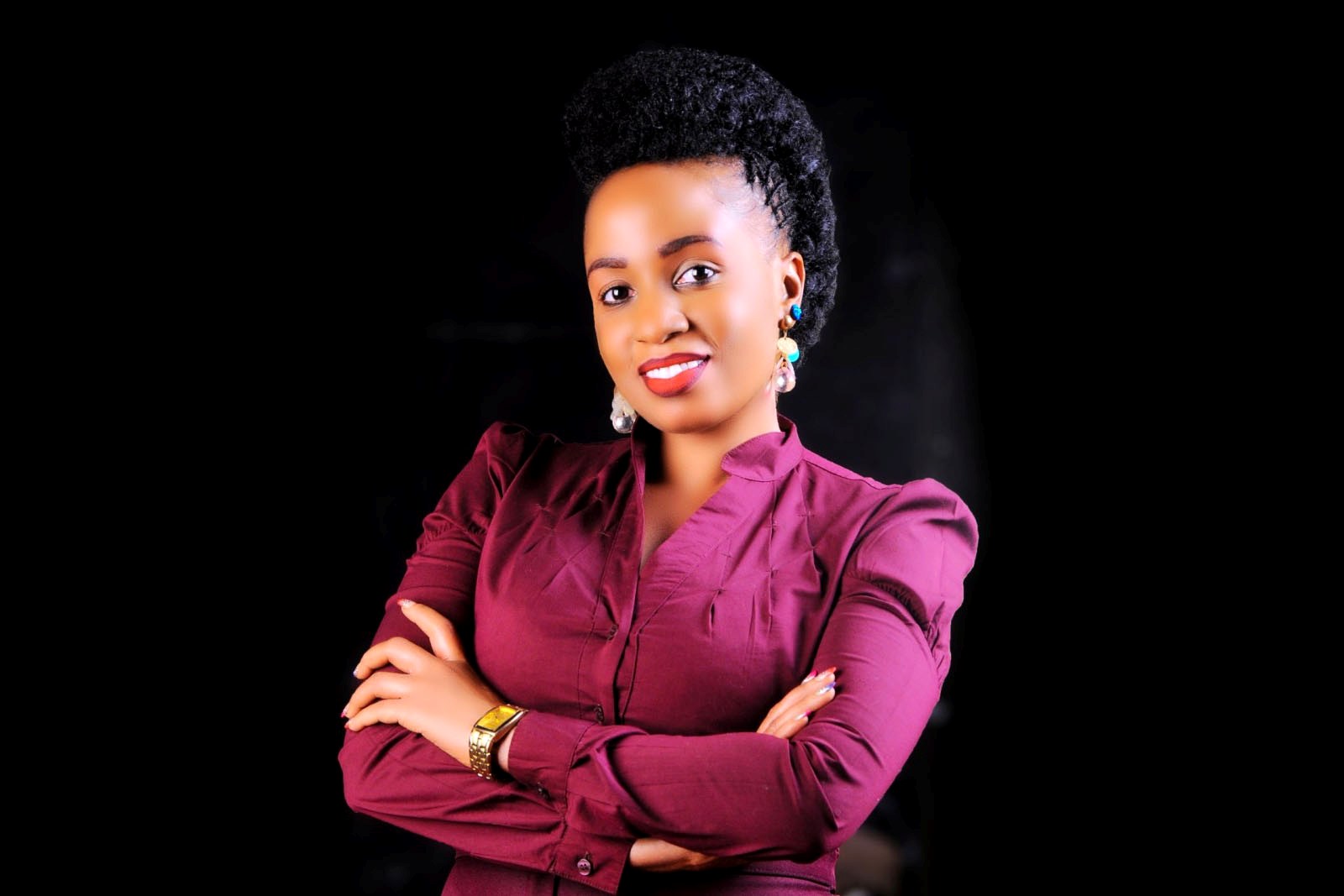
By Harriet Adong
Makerere University faculty, students and administrative staff diversely engaged at the Appropriate Technologies Expo. One of the over 850 multidisciplinary projects funded by the Government of the Republic of Uganda through Makerere University’s Research and Innovations Fund (Mak-RIF) https://rif.mak.ac.ug/ emerged ‘BEST INNOVATION’ (out of 46 showcased innovative solutions) at the Expo. This was Uganda’s Ministry of Water and Environment – Appropriate Technology Centre (ATC) 2023 Expo organized in partnership with Makerere University and United Nations Children’s Fund (UNICEF). It was the second Expo held at Kololo Ceremonial Grounds; Thursday February 2nd through Saturday February 4th, 2023 guided by the Theme: “Showcasing Appropriate Technologies that can be adopted to improve health, hygiene, social wellbeing, agriculture and environmental conservation”. Seven projects funded by the Government of the Republic of Uganda through Mak-RIF participated in this Expo.
The Winner and Best Innovation at the Expo is Makerere University’s project titled: Valorization of Waste Chicken Feathers for Water Purification: Designing and Constructing Low-Cost Keratin Based Nanofilters as Adsorbents of Heavy Metals and Nanosized Contaminants (MAK-RIF/CH/02/21). This project is being incubated at Makerere University College of Natural Sciences (CoNAS) under the leadership of Dr. Alice Nabatanzi, the Principal Investigator.
“This is very exciting news, it is evident that innovations start small, just think without the box, explore and leverage readily available resources and put these into use to propose solutions to address community challenges. Thank you so much Government of Uganda for the funding. Thank your Makerere University management for the enabling environment and thank you team at Mak-RIF for the opportunities for us to showcase our solutions. We pledge our best”, said Dr. Nabatanzi. She added that the efforts at hand currently are geared towards scaling the project for wider reach and in saying this she called upon potential partners, donors including the government of Uganda to embrace further supporting such innovative solutions to scale. Other team members include; Mr. Stanley Ofwono, Project Technician and Ms. Irene Achede, Project Administrator. Like other supported project teams, this team is engaging external stakeholders; Mr. Samson Okwir from Ugachick Poultry Breeders Ltd supports project implementation. In addition, mentorship of students is key at a higher learning institution like Makerere University and for this reason Mr. Thomas Wanyama and Tropher Ssali; Bachelor of Science Biotechnology students at CoNAS are team members of this project and they greatly supported at the Expo.
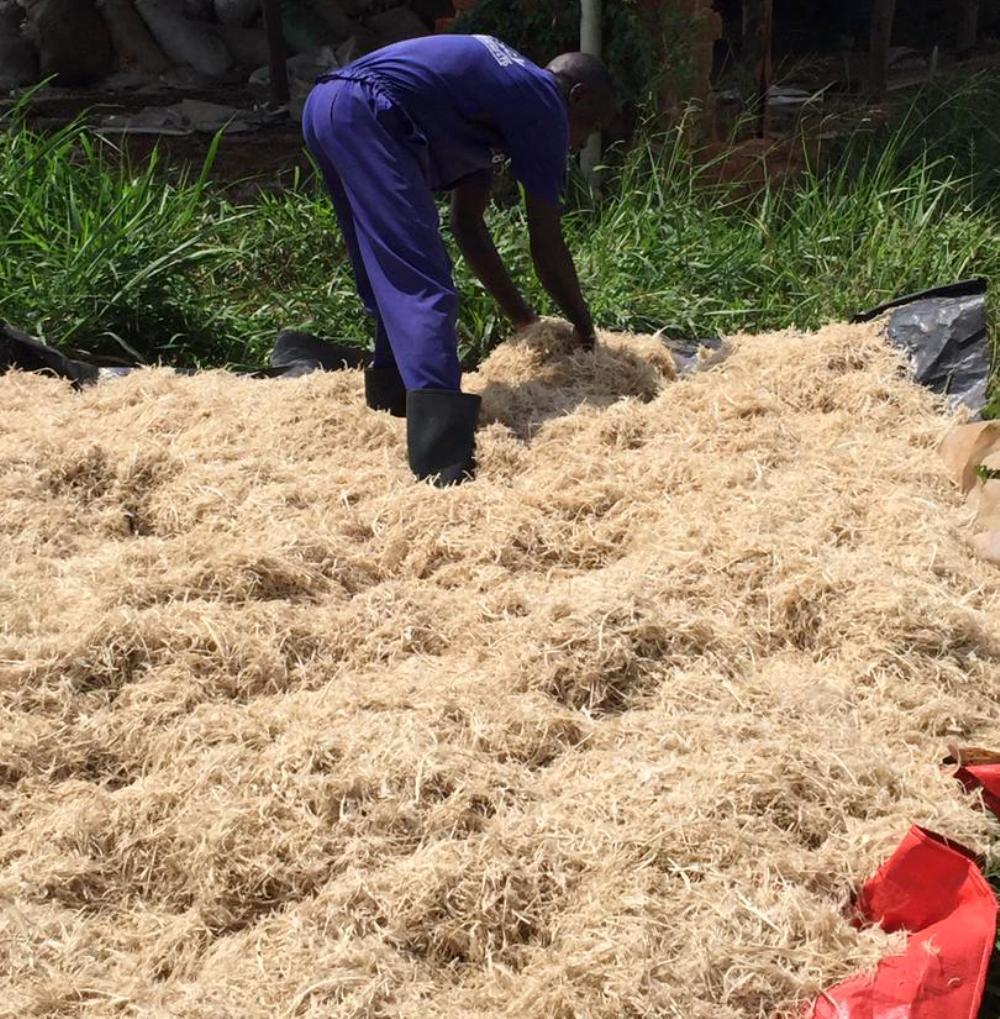
This project developed a keratin-based nanofilter using waste chicken feathers. This is a new technology and one of its kind in Uganda and Africa at large. The project aimed at efficiency and sustainability while promoting a circular economy. The developed filter is able to clean and purify water through removal of micro-organisms, heavy metals and other nano contaminants. The filtered water is safe and ready for use and even drinking. This project purposes to control environmental pollution through recycling of waste chicken feathers as it contributes to improved health, food safety, food security and environmental safety. This project majorly contributes towards SDGs 3, 6, 9, 13.
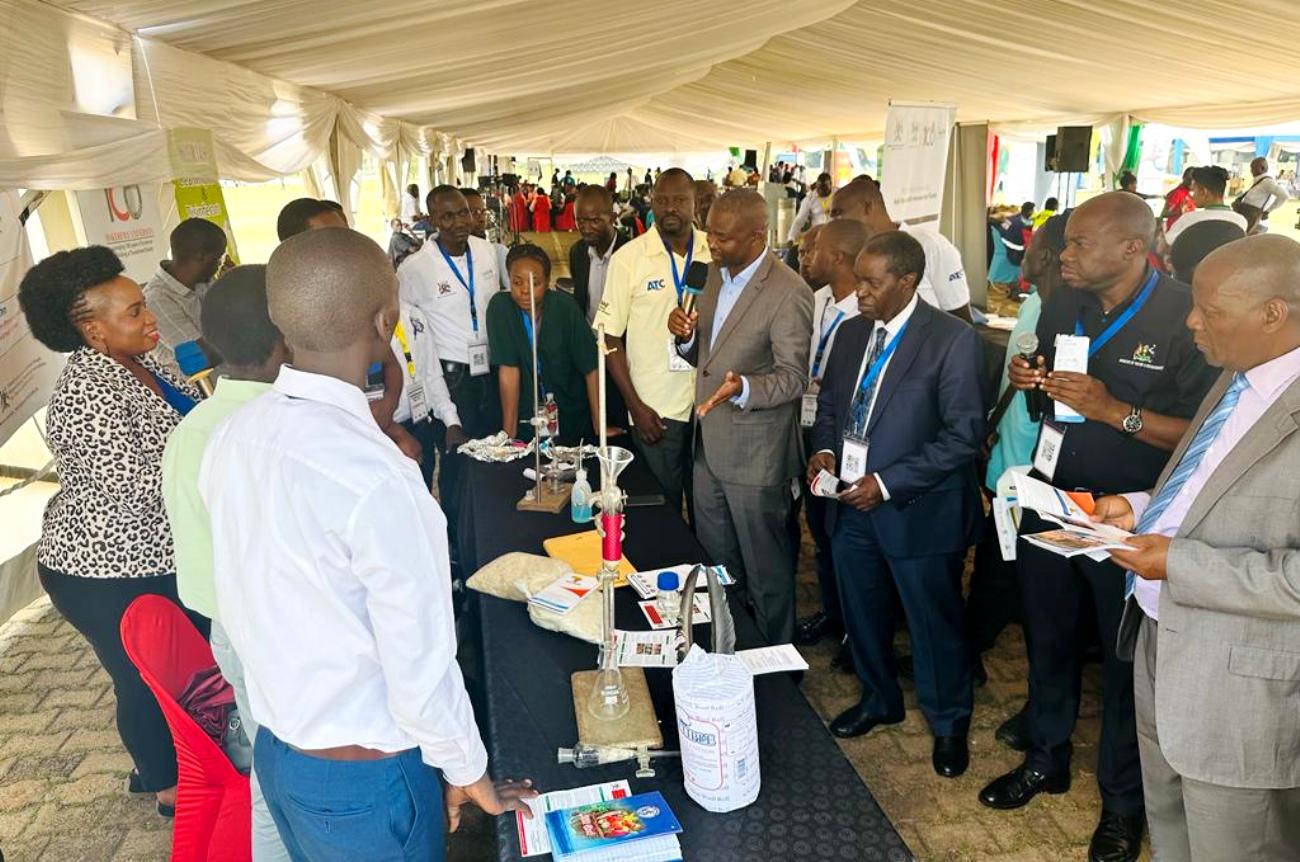
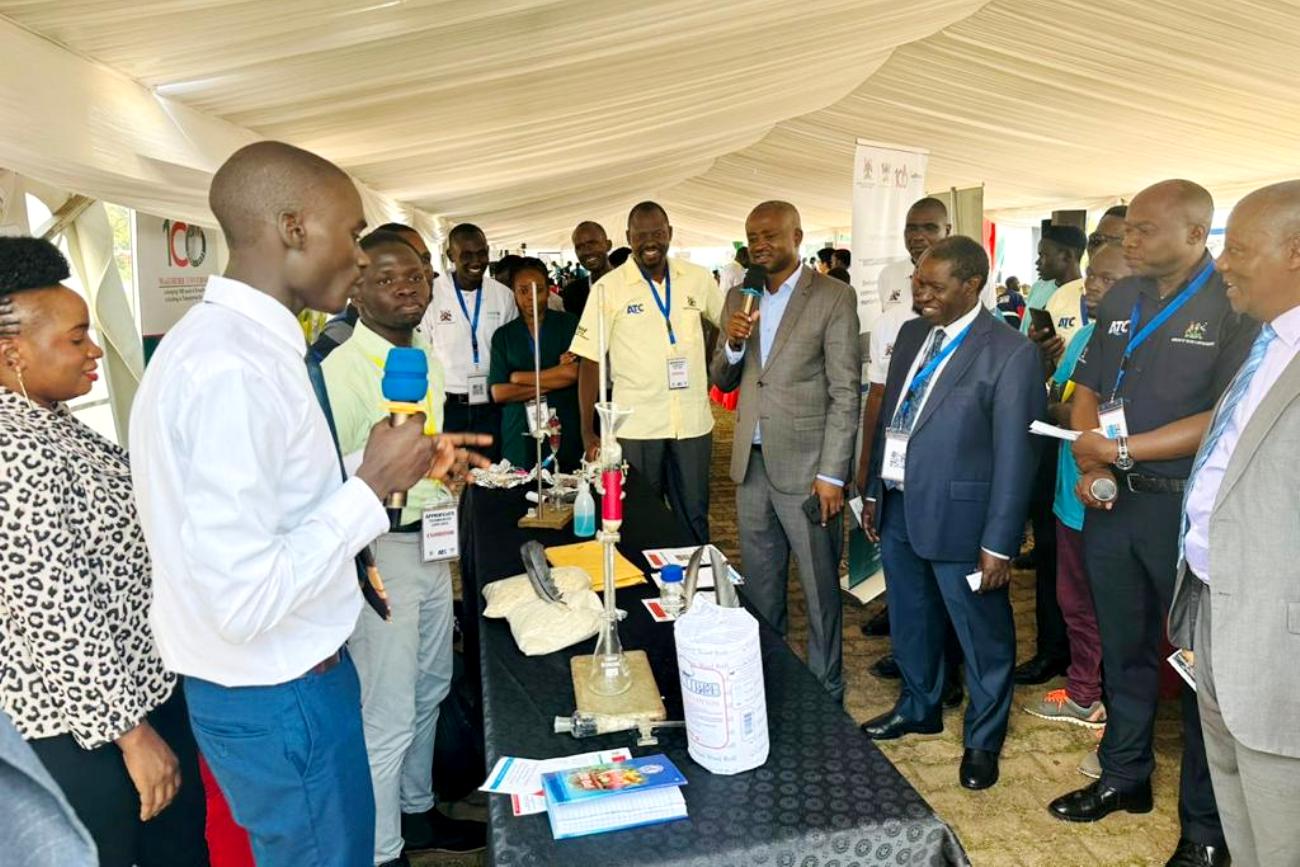
The second-best Innovation was the Trenching Machine that eases excavation of trenches during laying of water pipes and the third was an application used in the operation and maintenance of a water supply system both by teams from Busitema University. Congratulations!
Other Mak-RIF projects showcased at the Expo include the following;
- Green synthesis of graphene from Agro waste for energy storage devices – Dr. Nobert Mukasa – College of Engineering Design Art and Technology (CEDAT).
- Towards a Food Secure Uganda Under a Changing Climate – Dr. Isaac Mugume, College of Agricultural and Environmental Sciences (CAES).
- Environ e-Watch App for increased community surveillance in environmental monitoring catchment degradation and restoration – Dr. Patrick Musinguzi, College of Agricultural and Environmental Sciences (CAES).
- Functionalized XEROGEL – Carbon Water Filters – Dr. Ibrahim Karume, College of Natural Sciences (CoNAS).
- E-Participatory Innovation Platforms for Improved Access to Forestry Extension Services – Associate Prof. Justine Namaalwa, College of Agricultural and Environmental Sciences (CAES).
- Green Low-Cost Touchless Handwashing Technology (TW-20 Kit) For Public Shared Spaces, Dr. Dr. Joshua Wanyama,College of Agricultural and Environmental Sciences (CAES). Details about the launch of these kits are shared on https://rif.mak.ac.ug/mak-unveils-a-touchless-handwashing-kit-for-public-shared-spaces-in-response-to-covid-19-pandemic/
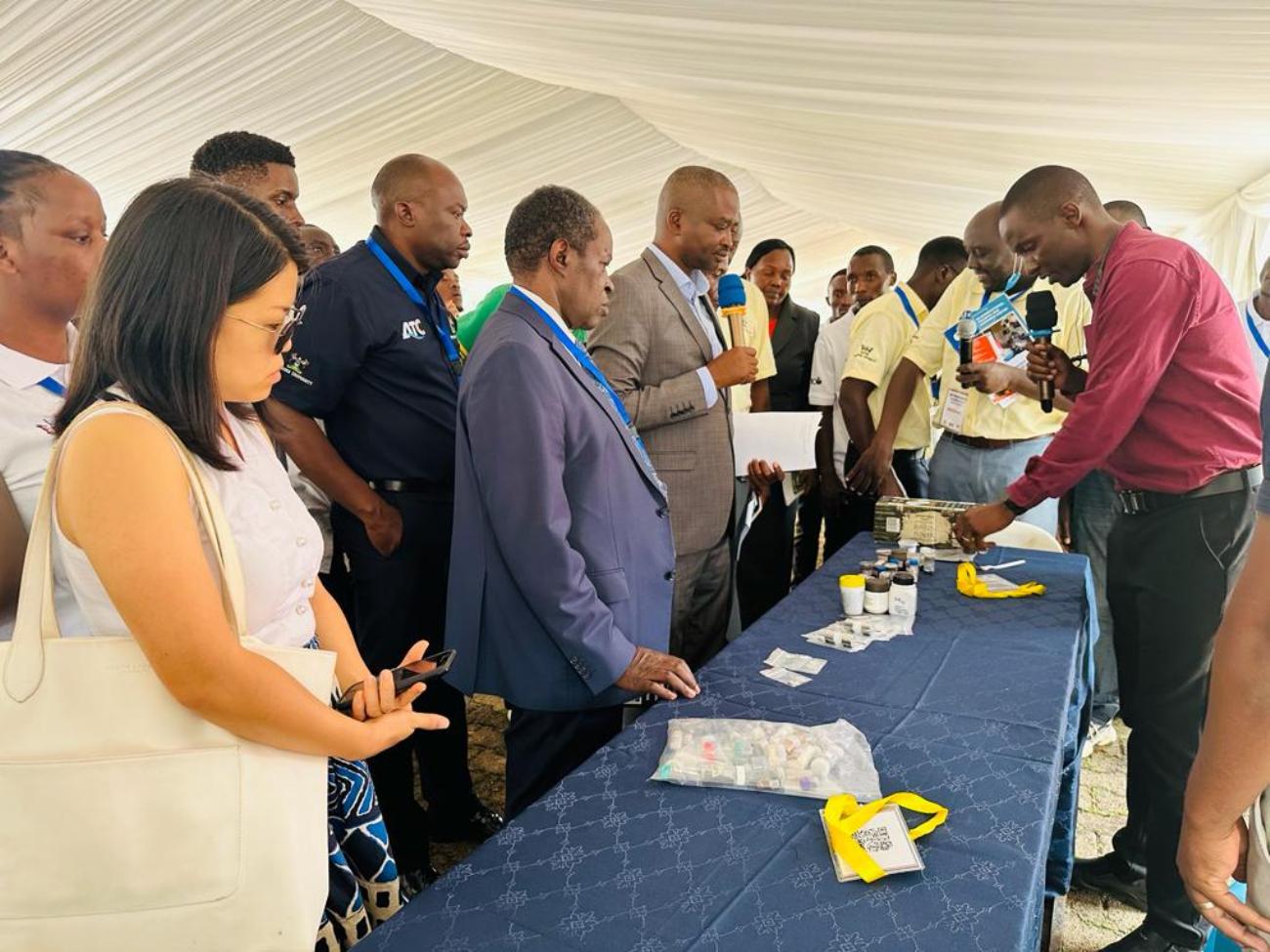
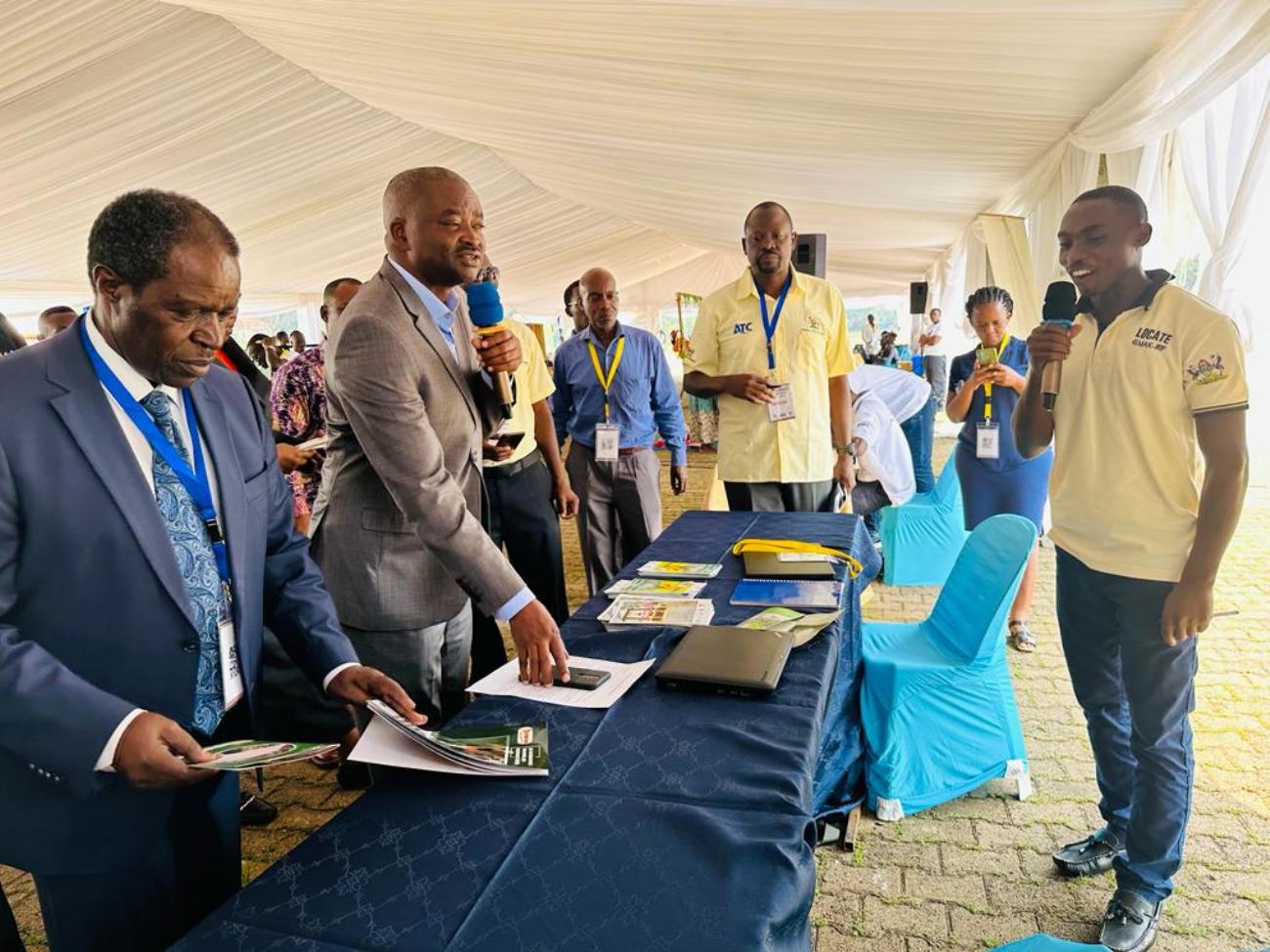
Upon receipt of this exciting news, Prof. Fred Masagazi-Masaazi, the Mak-RIF Chairperson Mak-said “Wow, Congratulations to all exhibitors at the just concluded ATC 2023 Expo and specifically to Makerere University’s Dr. Nabatanzi and your project team. I am happy that the adjudicators at the Expo identified this project and recognized it as the ‘BEST INNOVATION’. Indeed, we have many more potentially transformative projects being supported under the Mak-RIF initiative with funding from the Government of the republic of Uganda”. “We are forever grateful to the Government of Uganda for supporting research and innovations at Makerere University. This fund has continued to have spillover effects to other institutions of learning and organizations with whom our researchers and innovators have continued to work” Prof. Masagazi added.
The Appropriate Technologies 2023 Expo was an opportunity for Ministry of Water andEnvironment inpartnership with Makerere University and United Nations Children’s Fund (UNICEF) to showcase 47 innovative solutions directed towards positively impacting communities in which we live and serve. It was also at this Expo where the general public received various health services including HIV and Aids Counseling and Testing, Vaccination,testing for lifestyle diseases and Safe Male Circumcision etc. from Makerere University Hospital team. The Expo was attended by Members of Parliament, government officials including commissioners and assistant commissioners, private sector, researchers, innovators, entrepreneurs, the Media, Higher Education Institution faculty and students among others. Details about the Appropriate Technology Centre (ATC) are shared on https://atc.mwe.go.ug/
Engineer Christopher Tumusiime, Commissioner of the Water Utility Regulation Department at Uganda’s Ministry of Water and Environment welcomed all participants to the Expo noting that the Expo was an opportunity to showcase water supply, sanitation and environmentally appropriate technologies to spur social economic development in Uganda. “We are using this Expo to show that science and technology can be used to adjust effects of climate change, improve access to safe water, improve data management among others”, Engineer Tumusiime added. He thanked Makerere University Hospital team for providing health services during the Expo. He also thanked Prof. William Bazeyo, the ATC Chairperson for mobilizing Expo participants noting that he was also grateful to the Expo partners for all the support which enabled it to happen.
Mr. Yakubu Al Hassan Kassim, WASH Officer at UNICEF commended all stakeholders for a job well done at the Expo. He noted that the theme was well thought out especially in this error of socio-economic development efforts. “Let us give all these technologies support to scale. UNICEF focusses on sustainability of these technologies because this is authentic for home grown solutions. We are proud to be part of this and please, whenever there is an opportunity, call on us” he added.
Prof. William Bazeyo, the Appropriate Technology Centre Chairperson called upon all stakeholders to support Uganda’s innovations to get into the different markets. He said “Our people in the communities deserve even more especially using some of the simple technologies for example purification of water”. Prof. Bazeyo thanked Hon. Aogon for sparing time to engage with each exhibitor while offering guidance. He requested Hon. Aogon to please take the message to the committee he is leading that what they are looking for is all at the ATC Expo. “One day, Uganda will be a source of what the region requires for example employment of the youth” he added. He also thanked Makerere University and UNICEF for the partnership noting that he is always proud to be part of Makerere University and would continue working with the teams to spur research and innovation.
Honorable Silas Aogon, Uganda’s Member of Parliament for Kumi Municipality, Kumi District and Chairperson Uganda Parliamentary Forum on Water Sanitation and Hygiene (WASH) graced the expo as Chief Guest. He commended Ugandans who are researching and innovating including those embracing research and innovation. He called upon all to make technology and its aspiration viral. “Let new circles influence upcoming circles to grow technology” he noted. “We need appropriate technologies to save our natural bodies, control pollution, and reduce carbon emission” Hon. Aogon added. He also said that appropriate technologies need to trickle down to the last mile communities and thus the need to continue supporting the growth and development of technology. “On behalf of Government of Uganda, we pledge to continue supporting technology growth in Uganda and beyond. Let us all accord technology and innovation a priority so that we all benefit in one way or another” he said. He applauded the two Professors; Prof. William Bazeyo, the ATC Chairperson and Prof. Sylvia Nannyonga Tamusuza, Chairperson Makerere University Grants Administration and Management Unit and Head of Department Makerere University Department of Performing Arts and Film who joined in the Expo. He also appreciated the Makerere University Department of Performing Arts and Film for entertaining the Expo participants noting that when people sing properly then one is able to even work properly. He concluded by noting that by the time someone carries out research by him or herself, then that is a calling from God and may God continue to bless all researchers and innovators.
This Expo was also livestreamed online
Day 1 of the Expo – Follow the engagement on https://www.youtube.com/live/LI2z4hKCWvA?feature=share
Day 2 – https://www.youtube.com/live/qL8OcMJ0OvQ?feature=share
Day 3 – https://www.youtube.com/live/NjrK2s3FQak?feature=share
Harriet Adong is the Communications Officer, Makerere University Research and Innovations Fund (Mak-RIF)
Contributor: Dr. Alice Nabatanzi, Project Principal Investigator
You may like
-
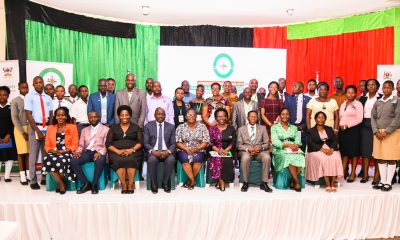

Mak develops new model to aid teaching of Maths in Lower Secondary Curriculum
-
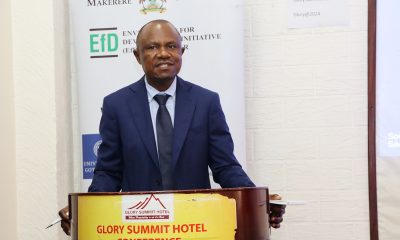

EfD-Uganda Holds Inaugural AGM: Celebrates Milestones and Outlines Future Plans
-
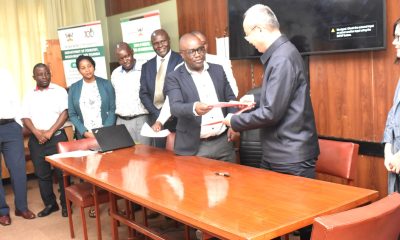

Mak, Nanjing University of Information Science & Technology Sign Collaboration Agreement
-
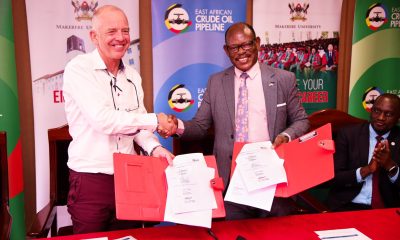

Makerere signs MoU with EACOP Ltd.
-
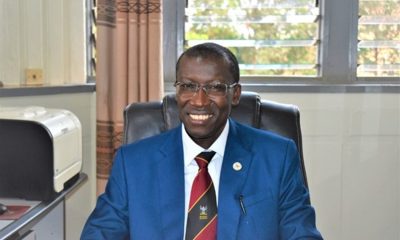

CoVAB Annual Report 2023
-
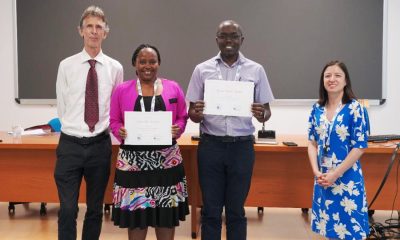

CARTA Fellow Anywar Appointed Member of BMC Editorial Board
Natural Sciences
CARTA Fellow Anywar Appointed Member of BMC Editorial Board
Published
3 weeks agoon
July 5, 2024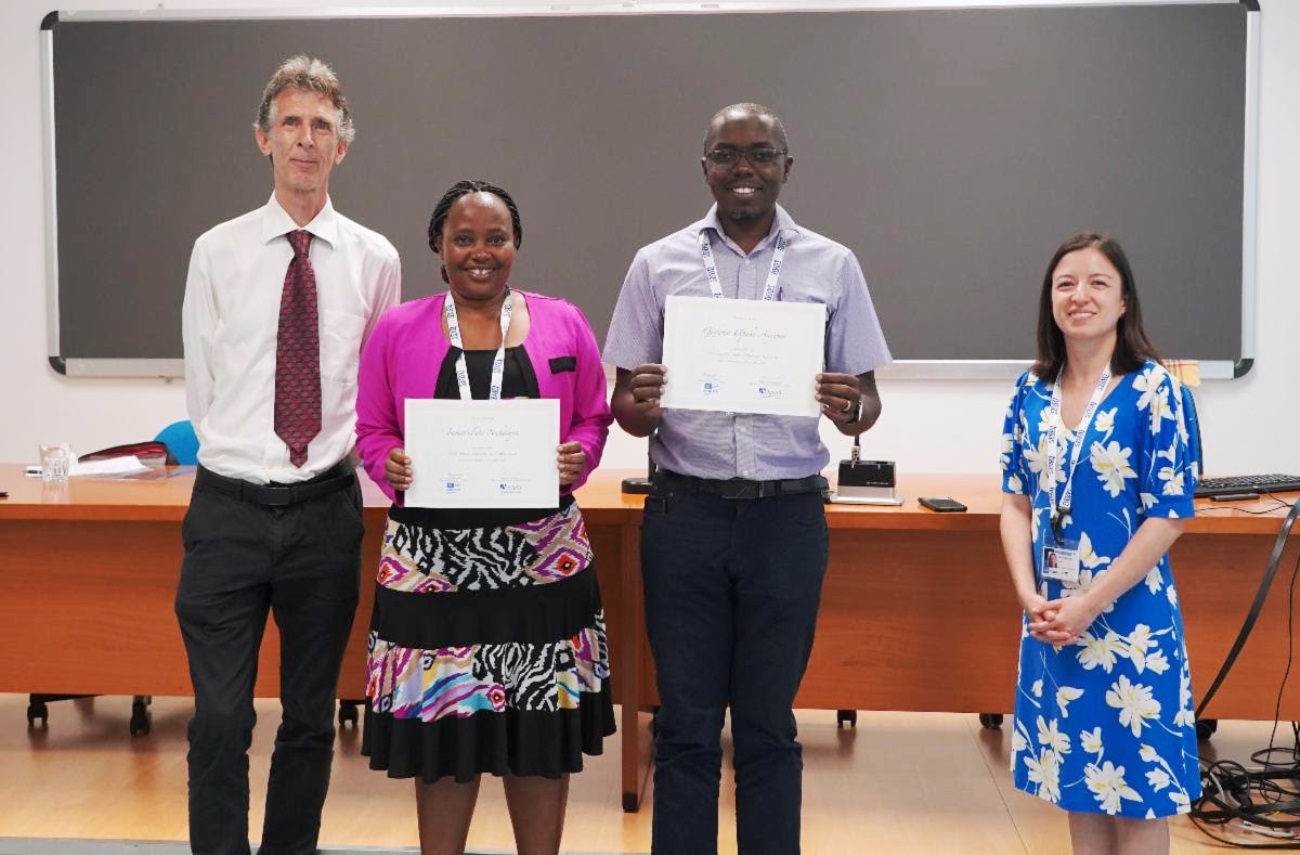
Godwin Anywar, cohort 6, Makerere University, was appointed a Member of the editorial board of BMC Complementary Medicine and Therapies on June 18, 2024. The appointment is on a rolling basis, renewable after every two years.
He also attended the Science Diplomacy Course in Trieste, Italy, from June 17 to 21, 2024, under the auspices of the American Association for the Advancement of Science (AAAS), Washington, DC, USA, and The World Academy of Sciences (TWAS), Trieste, Italy.
Source: CARTA Newsletter Issue 78
Natural Sciences
Mak Researchers develop Innovative Integrated Wetlands-bivalve system to Mitigate Effects of Pollution in Aquaculture farms in the Lake Victoria Basin
Published
4 weeks agoon
July 2, 2024By
Mak Editor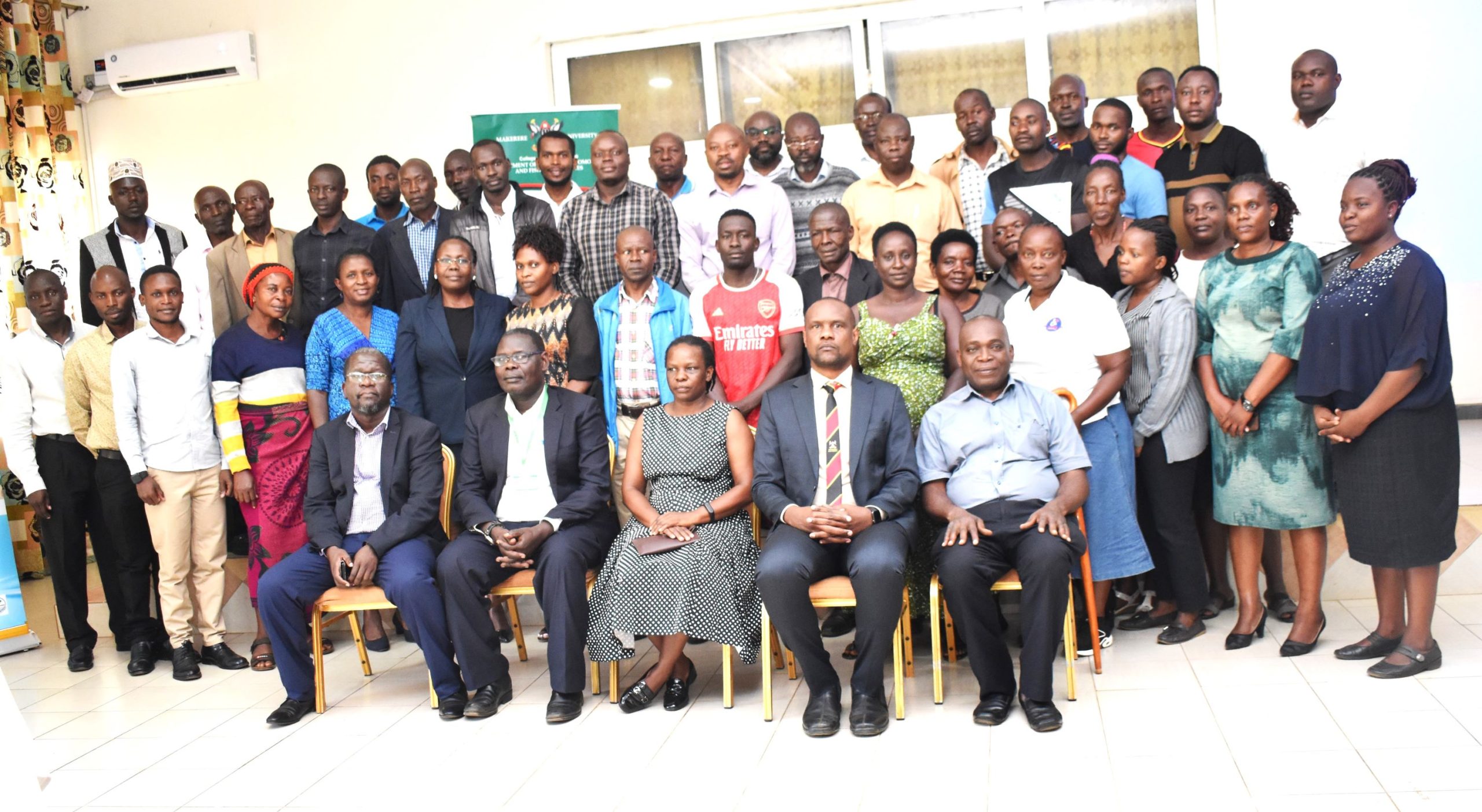
By Hasifa Kabejja & Dr. Robinson Odong
Overview
The fisheries sub-sector in Uganda is crucial, supporting over 5 million livelihoods and providing essential protein for up to 17 million people, with an average consumption of 10 kg per capita. Uganda’s population is projected to double in the next 27 years, prompting the National Development Plan III to aim for a significant increase in fish production, with aquaculture expected to contribute 1 million MT by 2030. The Fisheries and Aquaculture Act 2022 emphasizes adherence to National Environmental Management principles to achieve sustainable production systems.
However, as aquaculture grows, the sector faces environmental challenges due to increased intensive production and on-farm waste, including nutrients from feed, uneaten feed, poor quality feeds, pseudofeces, escaped farmed fish, and residual chemicals. These pollutants pose risks such as habitat quality deterioration, biodiversity loss, eutrophication of waterways, and the emergence of drug-resistant pathogens.
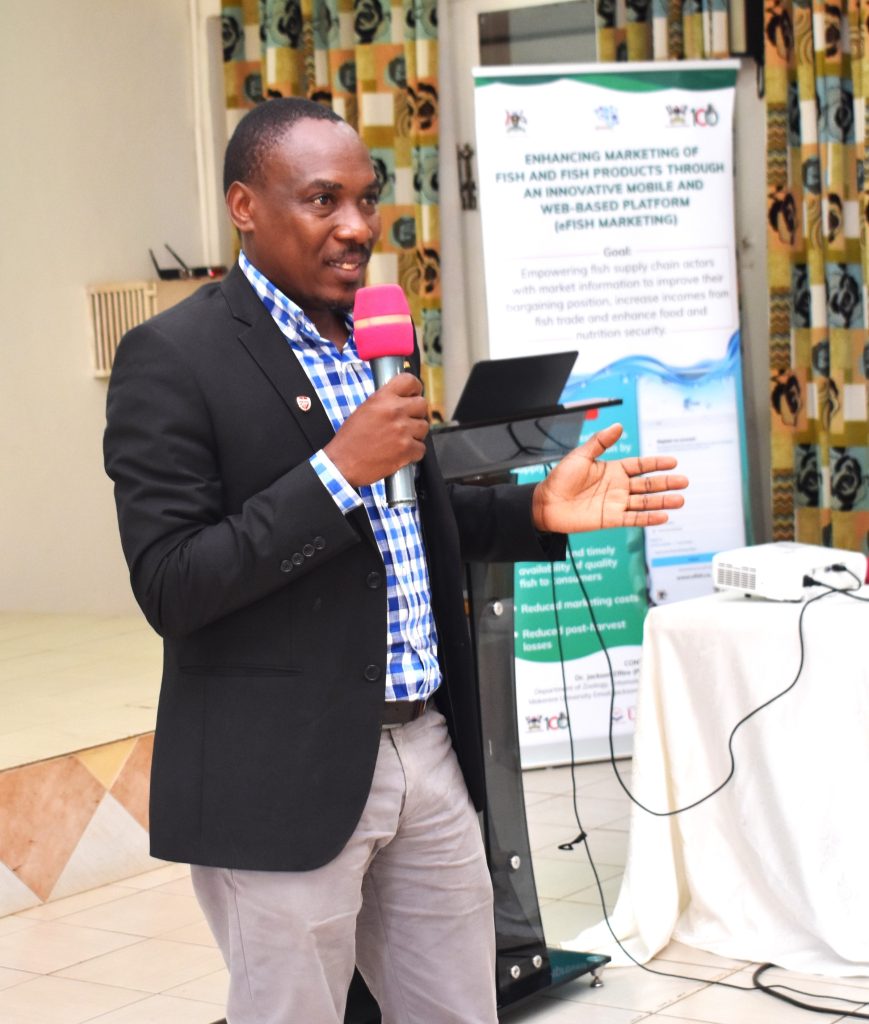
Mitigating the effects of environmental pollution from aquaculture
Through a Project titled: Mitigating the Effects of Environmental Pollution from aquaculture on freshwater resources in Lake Victoria Basin (MEEP), researchers from Makerere University in collaboration with the National Environment Management Authority (NEMA) set out to assess the effects of aquaculture facilities and practices on Lake Victoria, its catchment rivers and wetlands. The team led by Dr Ronald Semyalo from the Department of Zoology, Entomology and Fisheries Sciences (ZEFS) at Makerere University subsequently examined the effectiveness of innovative technologies, such as integrated wetland-bivalve systems, in mitigating these impacts. They also reviewed the application of national environment and aquaculture regulations in controlling environmental pollution. The study surveyed fish farms in three districts of Buikwe, Jinja, and Mukono within the Victoria Water Management Zone. Other project team members were: Dr Jerome Lugumira from NEMA, Dr Robinson Odong and Mr. Drake Ssempijja from ZEFS, Makerere University, and Ms. Ritah Namisango, Senior Public Relations Officer at Makerere. The Project was supported by the Government of Uganda through the Makerere University Research and Innovations Fund (MakRIF).
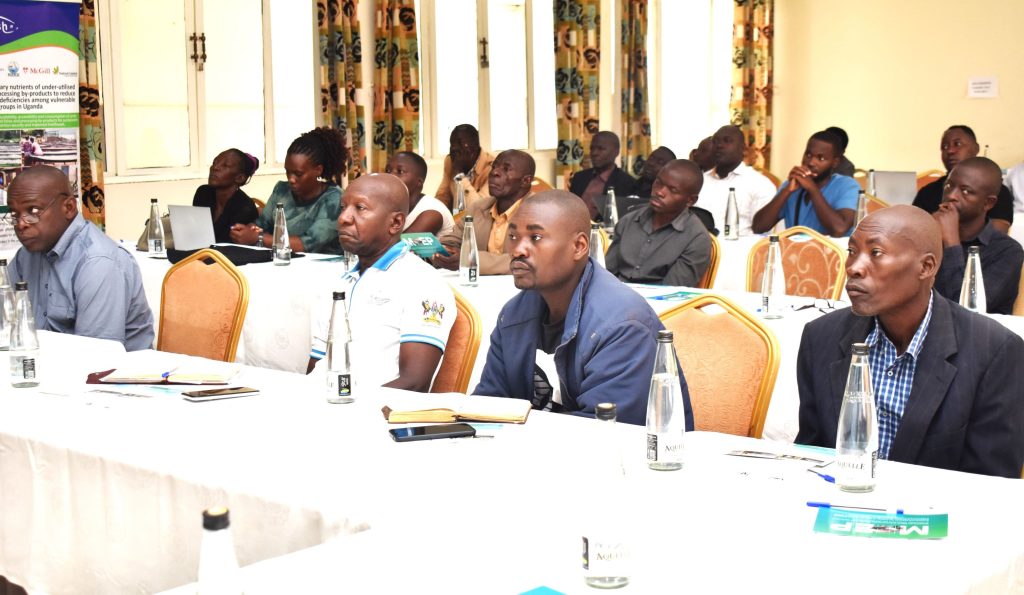
During their engagement with different stakeholders in the fishing industry including the fish farmers from Jinja, Buikwe and Mukono, as well as experts from the Directorate of Water Resources at the Ministry of Water and Environment, NEMA, and the Directorate of Aquaculture Development at MAAF, the research team established that only 138 out of 380 registered fish farms were active, with 45.6% of the farms in Jinja, 35.5% in Mukono; and 18.8% in Buikwe. Overall, over 60% of the farms were inactive posing serious environmental threats.
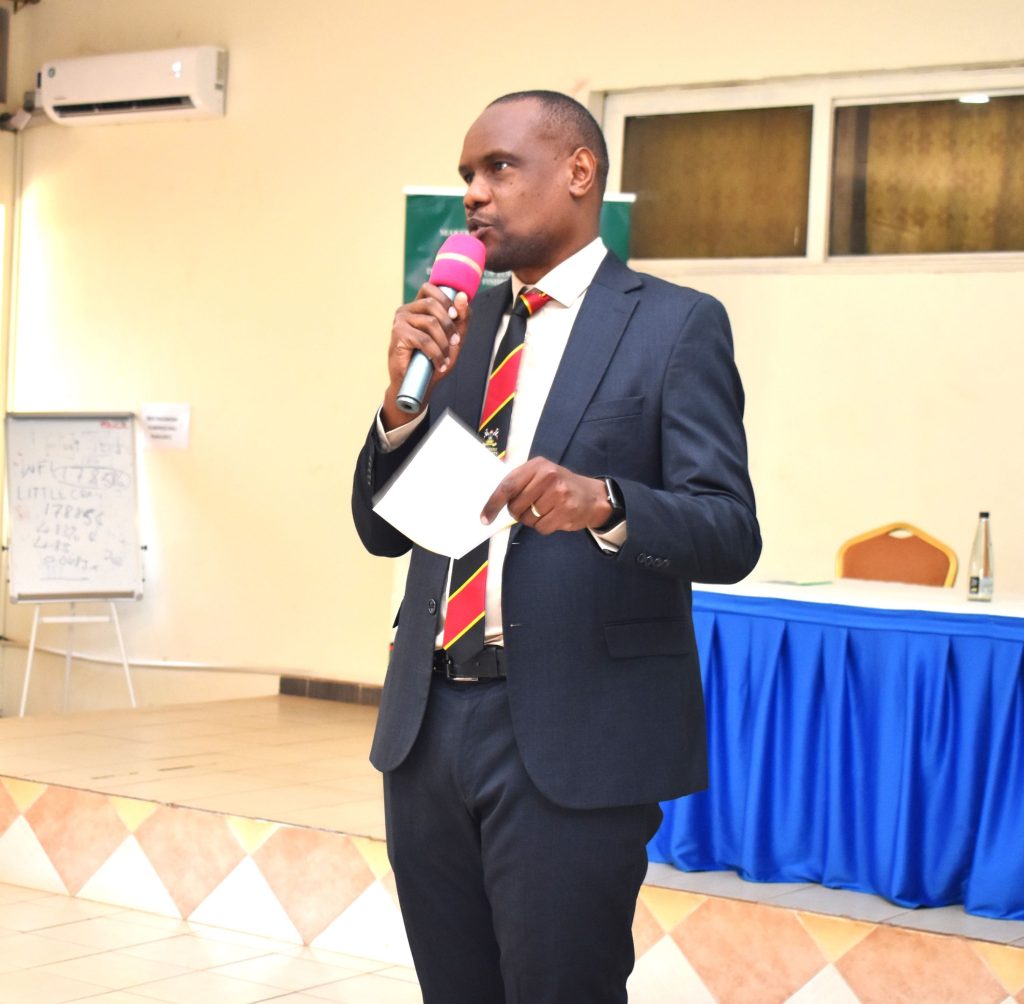
Dissemination of the research findings
On 26th June 2024, the project team held a workshop at Colline Hotel Mukono to disseminate the research finding to stakeholders who included fish farmers from Buikwe, Jinja and Mukono, District Fisheries Officers, as well as representatives from NEMA and MAAIF. In the presentations, the team highlighted the environmental impacts of aquaculture practices and the possibility of innovatively using nature-based, environmentally friendly innovations as a mitigation measure. The presentations covered farm characteristics, water and feed management practices, water quality assessments and waste management methods. The participants engaged in discussion on the implications of the results and shared their experiences and challenges in managing aquaculture operations.
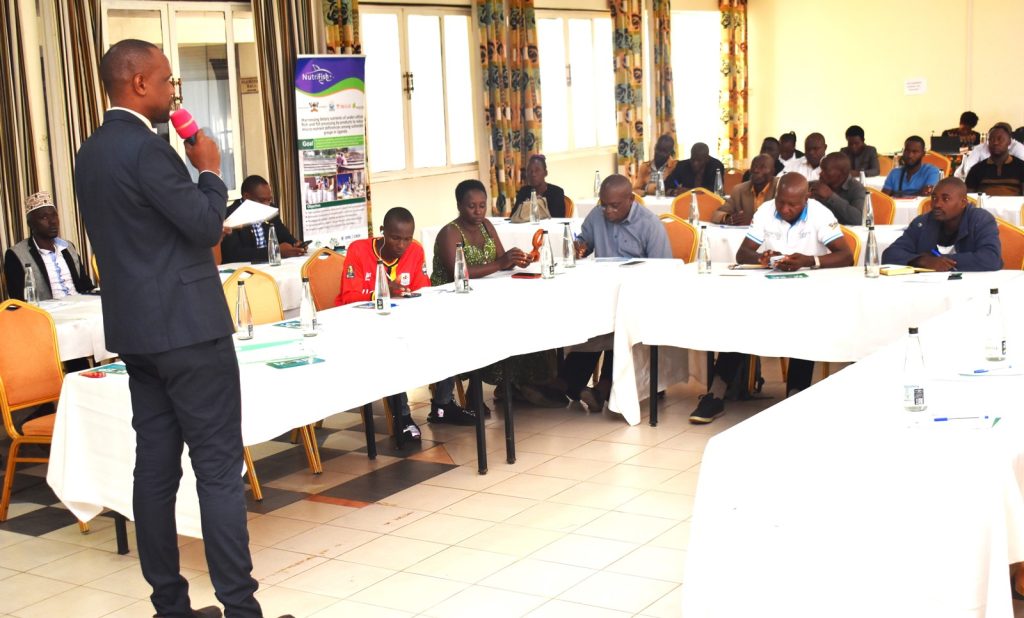
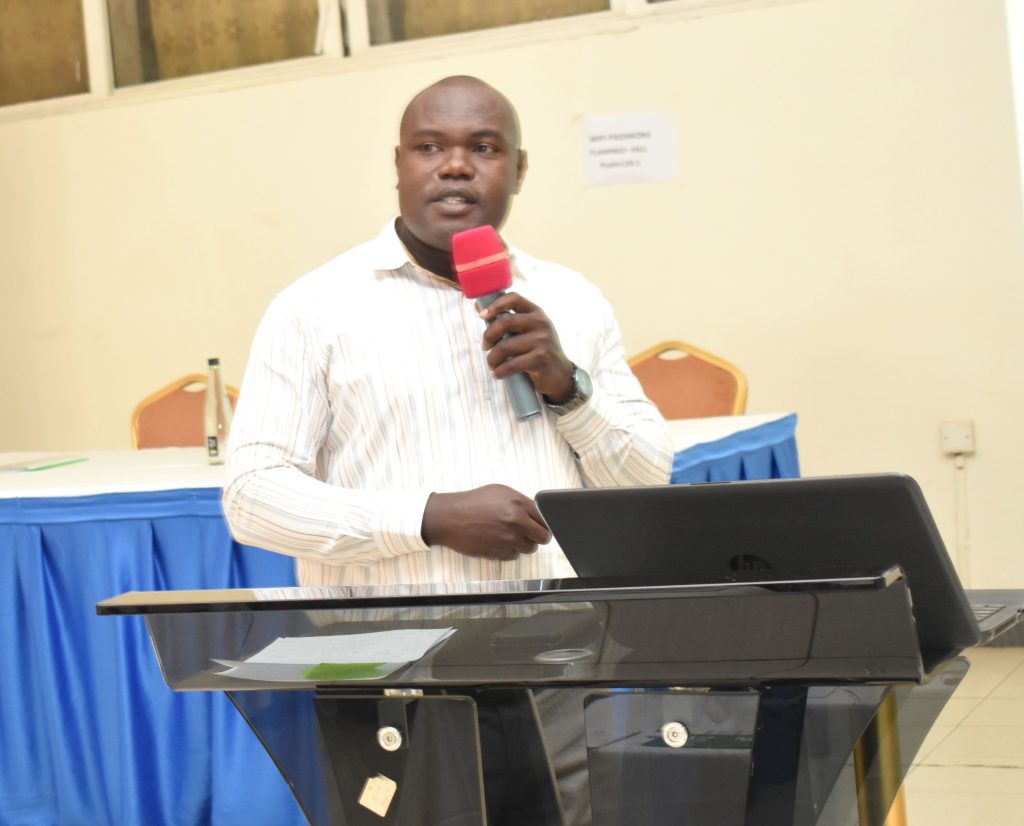
Key findings as disseminated by the PI
Out of the 380 farms, 119 were assessed. Below are the key findings;
- Environmental Impact Assessment: It was established that 81% of the farmers had not conducted Environmental Impact Assessments (EIAs) and Environmental audits. This, the researchers noted was one of the major causes of abandoned farms.
- Farm Characteristics: The majority of farms used earthen ponds (66.9%) and were semi-intensive (63.6%), relying on manufactured feed and pond fertilization. Intensive farms (30.5%) exclusively used manufactured feeds, while extensive farms (4.2%) relied solely on pond fertilization.
- Fish Species: Nile tilapia was the top choice (96.1%) for monoculture farms, while tilapia and catfish were preferred for polyculture systems (46.9%). Intensive farms predominantly farmed Nile tilapia.
- Demographics: Most respondents were male (90.7%), with a median age of 35 years. The largest age group was 31 to 59 years (43.2%).
- Fish diseases: The research revealed a number of diseases affecting aquaculture including: lesions/wounds on the belly and cysts on the scales, skin lesions and cysts on the belly, popping eyes and white substance on fins, open skin wounds, open wounds on the head, skin lesions – greyish, swollen eyes, whitish and black patches on the skin on the pelvic fin, wounds on the head.
- Water Use: Fish farms primarily relied on spring water and lake water. Other sources, such as streams, wells, and rivers, were also utilized. In most cases, the water source was shared with the community. Only a small percentage of respondents acknowledged any known disease outbreaks on their farms. There was a strong association between the district in which the farm was located and the water source used. Majority of those using lake water were in Jinja District, while most of those using spring water were in Mukono District. Additionally, there was a significant association between the fish species cultured and the water source used.
- Feed Management: A significant proportion of the farms heavily relied on factory-made feeds. These feeds were often used in combination with farm feed materials, such as maize bran, potato vines, yam leaves, and kitchen waste. A smaller number of farmers exclusively relied on farm-made feeds, while an even smaller percentage solely relied on pond fertilization. Manufactured feeds were used in various forms: powder and floating pellets, powder, crumble, and floating pellets, powder only, floating pellets only, and sinking pellets. The most prevalent method of feed delivery was feeding by response, while some farms also practiced feeding by ration.
- Waste Management: The findings indicated a concerning lack of treatment for aquaculture effluent, with majority of respondents (69%) releasing it directly into natural streams or wetlands. This highlights the need for improved environmental management practices. Common waste sources included faecal matter and dead fish. Most farms incinerated or buried solid waste.
- Water Quality: Measurements at the representative visited farms showed compliance with FAO optimal conditions for fish farms. The physicochemical parameters of the farms visited were in line with FAO optimal conditions for fish farms.
- Prevailing Regulatory System: A comprehensive gap analysis was conducted to supplement the findings from the survey. It aimed to identify weaknesses and areas for improvement in current policies and regulations governing aquaculture. It also evaluated the effectiveness of existing measures in addressing environmental pollution, waste management, and sustainable water use. This exercise provided a foundation for developing more robust and effective regulatory frameworks that support sustainable aquaculture practices, protect water resources, and enhance the overall environmental health of the Lake Victoria basin.
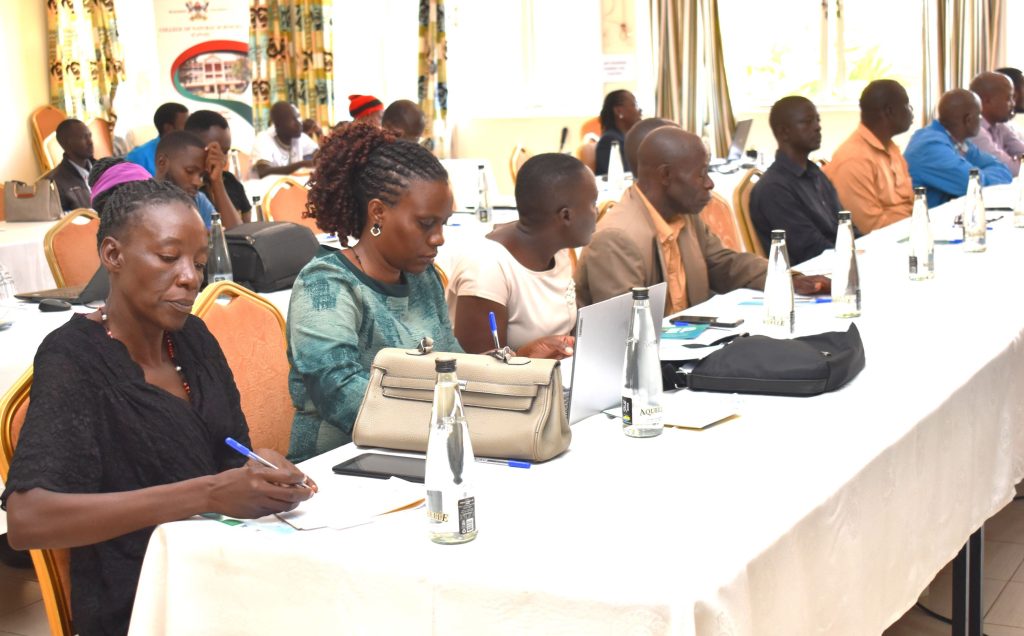
Project output
***Innovative Integrated wetlands-bivalves system was developed to mitigate the impact of pollution emanating from aquaculture on the environment
Effluent from poor aquaculture practices may contain uneaten feed residues and associated components, such as suspended solids, nutrient nitrogen and phosphorus and organic materials. If discharged without any form of treatment, such effluent contributes to excessive nutrient enrichment of water bodies, a phenomenon referred to as eutrophication. Eutrophic waters have diminished ecological value, for example are low in oxygen level and can lead to fish kills. Wetland plants, such as duckweeds can aid in cleansing of aquaculture effluent of excess pollutants, through various mechanisms. For example, the plant roots adsorb suspended solids, besides offering conducive attachment surfaces for beneficial microorganisms which perform various nutrient recycling roles. The plants also uptake excess nutrients, hence reducing their levels in water. Bivalves (Molluscs) are filter feeders, hence uptake and cleanse water of detrital or solid materials, hence augmenting the roles of the plants. The integration of wetlands-bivalves system offer synergistic roles in aquaculture effluent treatment. The plants and bivalves used in the treatment can in turn be removed and used for other beneficial purposes.
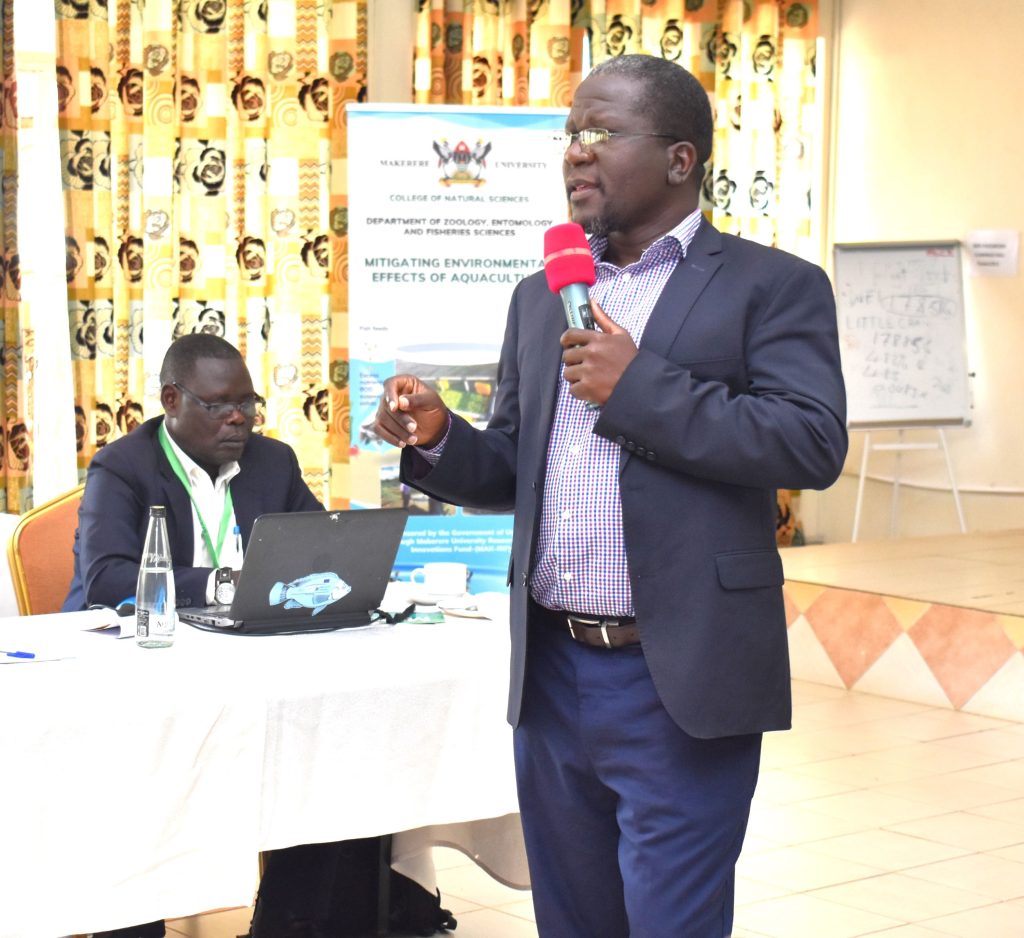
Presentation on policy gaps
During the dissemination workshop, Dr Jerome Lugumira, the Natural Resources Manager, Soils and Land Use at NEMA sensitized participants on the National Environment Act, 2019 with special emphasis on policy regulations for the aquaculture sector. He emphasized the need to acquire an EIA certificate before engaging in aquaculture. Highlighting the gaps in policy, Dr Lugumira noted that Schedule 4 of the National Environment Act, 2019 does not sufficiently guide the Fisheries sector; while the Physical Planning Act, 2010 is biased towards physical development planning, and the Water Act, 1997 provides for a waste discharge permit but no consideration of the extent of wastes discharged from fish farms of varying size and intensity is provided.
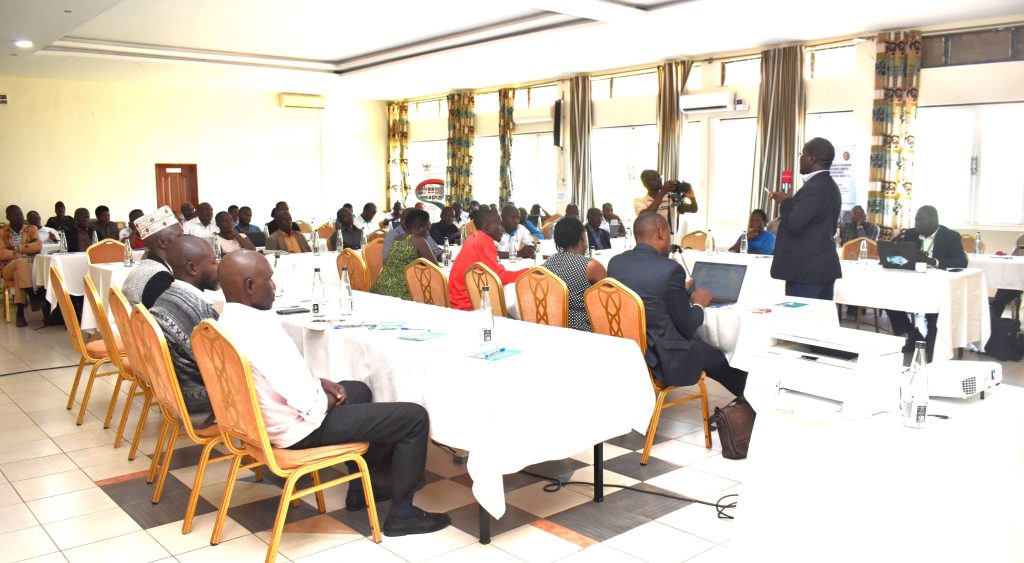
He further noted that the National Environment (Wetlands, Riverbanks and Lakeshores Management) Regulations, 2000 do not guide on areas where aquaculture best fits, indicating that the application of the 25% wetland area beyond which one needs approval is vague.
Additionally, he explained that the National Environment (Waste Management) Regulations, 2020 refer to fish waste generally and not whether it means waste from fish or all waste from fish farms, such as off-cuts, unwanted materials, and that the National Environment (Standards for Discharge of Effluent into Water or Land) Regulations, 2020 consider effluent discharge and not that released in-situ and that disposed directly into water via cages and into soil via land-based systems.
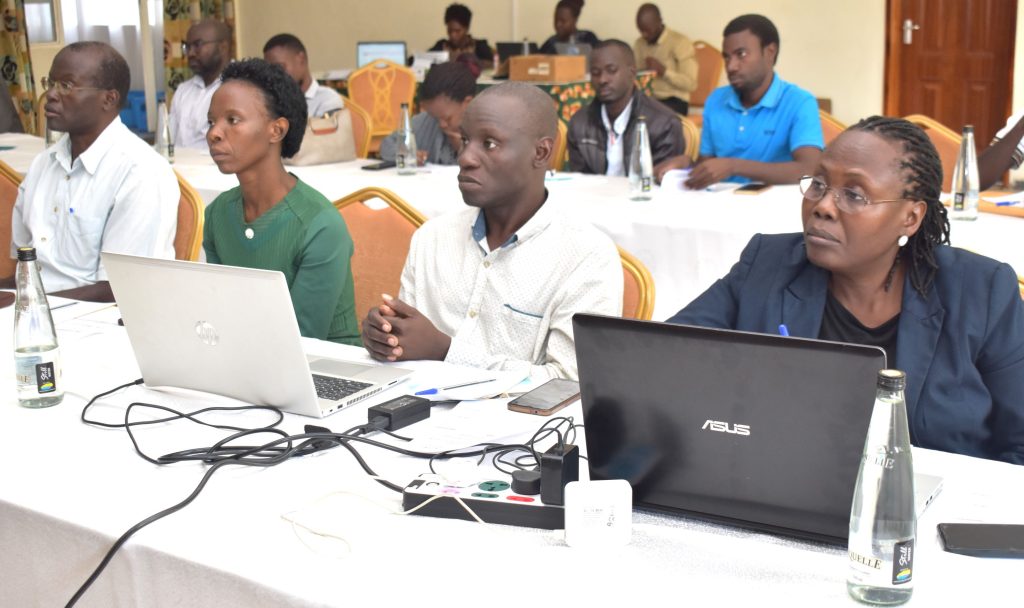
Dr Lugumira called for the review of the National Environment (Wetlands, Riverbanks and Lakeshores Management) Regulations, 2000, by requiring the mandated Lead Agency (WMD) to issue approvals for access to wetlands, and appending guidance on wetlands and lake areas where aquaculture is suitable. He suggested that submissions seeking approval from NEMA should have all required approvals from MAAIF, WMD and DLGs. “The assessment process should be supported by a technical officer skilled in fisheries sciences and not generalists,” he noted.
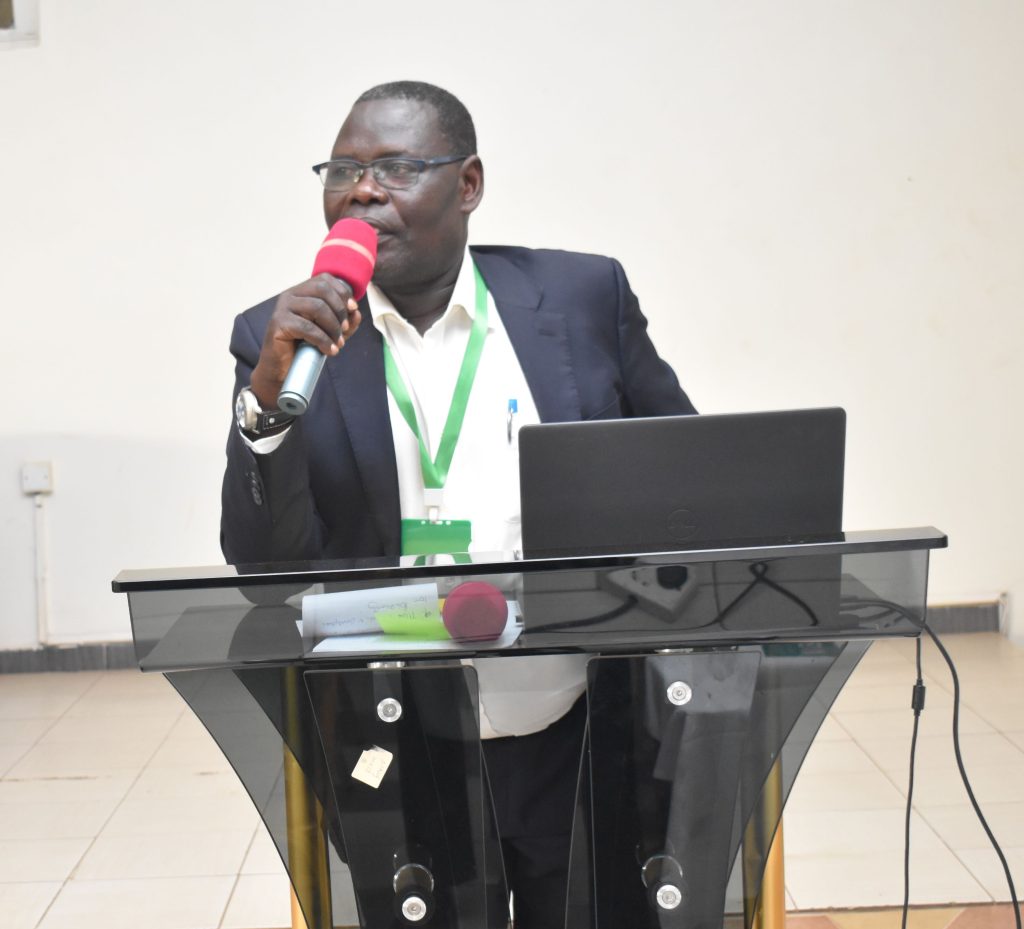
Overview on the state of capture fisheries and aquaculture in Uganda
Sharing an overview on the state of capture fisheries and aquaculture in Uganda, Mr. Geoffrey Dheyongera, Principal Fisheries Officer at MAAIF, noted that the global decline/stagnation in capture fisheries stocks had increased demand for fish, calling for a boost in fish production through stock enhancement in water bodies and promotion of aquaculture. “There is need for huge investment in aquaculture. The Aquaculture Policy targets 1 million MT from aquaculture through establishment of aquaparks with intensive management activities.”
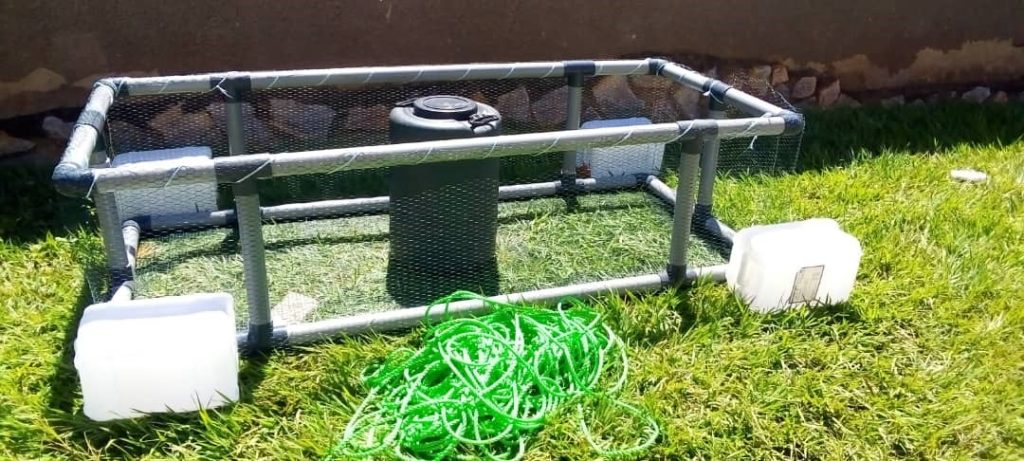
Key concerns raised by the farmers
During the focused group discussions, participants highlighted a number of factors undermining the growth of the aquaculture sector. These include;
- Ignorance about the laws/policy guidelines
- Low skills and lack of exposure in aquaculture management
- Low numbers of technical staff to guide the farmers
- Inexperienced technical staff
- Cheating by fish seed producers
- Expensive and poor quality feeds
- Fluctuating prices of fish
- Competition with capture fisheries/negative attitude towards farmed fish
- Increased degradation of the environment which affects water quality
- High interest rates on loans
- Farmers fear for exorbitant taxes
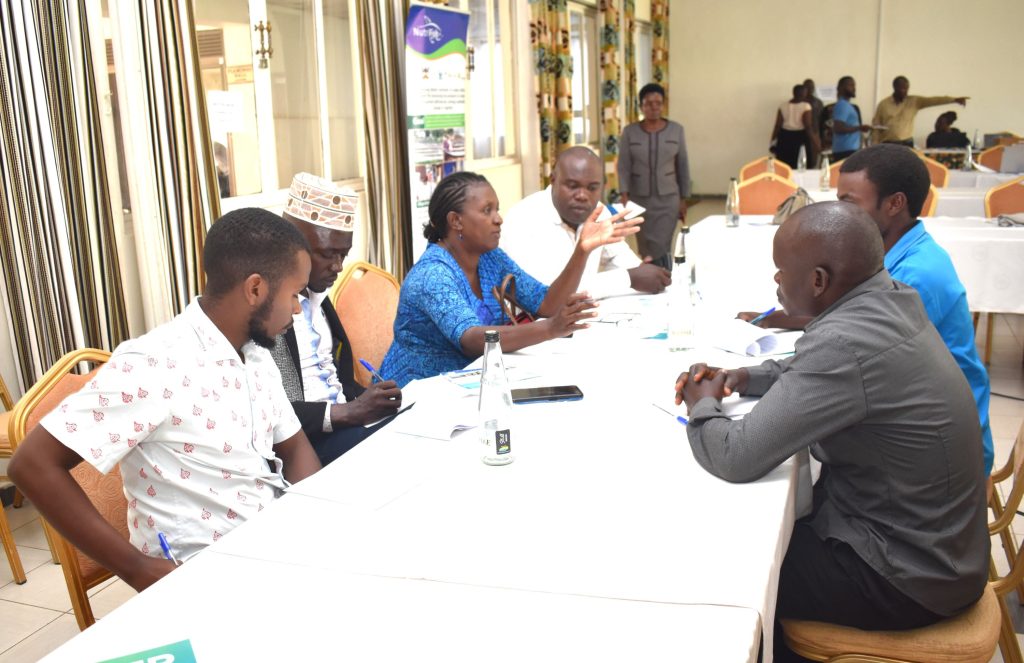
Proposals for improvement
- Government should recruit technical staff to assist farmers
- Thorough training of extension staff
- Encourage value addition to farmed fish
- Integrate climate smart interventions in aquaculture
- Policies regulating the sector should be popularized
- Undertake periodical review of the existing policies
- Encourage multi-stakeholder involvement in the implementation of policies
- Invest in research responsive to fish and aquaculture sector needs
- Monitor quality of fish feeds to satisfy farmers’ needs and environmental safety
- Private hatchery operators must be supported by the responsible sector agencies to ensure quality seed. Likewise, fish seed must come from certified hatcheries.
- Inspection of farms should be strengthened
- Train farmers on proper aquaculture management practices
- Farmers should work in groups to reduce production costs, negotiate better prices for their products, access credit facilities and maximize profits
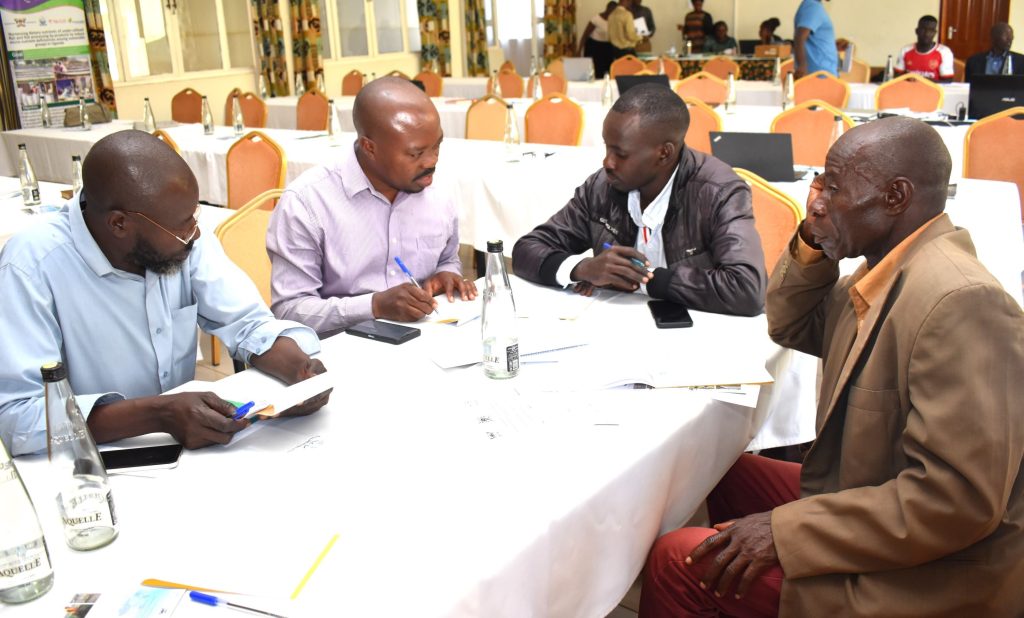
Remarks by the Guest of Honour, Mukono District CAO, and the Principal, CoNAS
In his remarks, the Guest of Honour, also Assistant Commissioner Aquaculture Management at MAAIF, Mr. Alio Andrew, guided the farmers on proper aquaculture practices, and encouraged Ugandans to invest in the fish sector. “The demand for fish has increased. Aquaculture remains a viable option,” he noted. He also raised the need to support private hatchery operators to produce quality seed, emphasizing that fish seed should only be bought from certified hatcheries. He highlighted the significance of biosecurity in aquaculture, and the need to collect appropriate data on the sector.
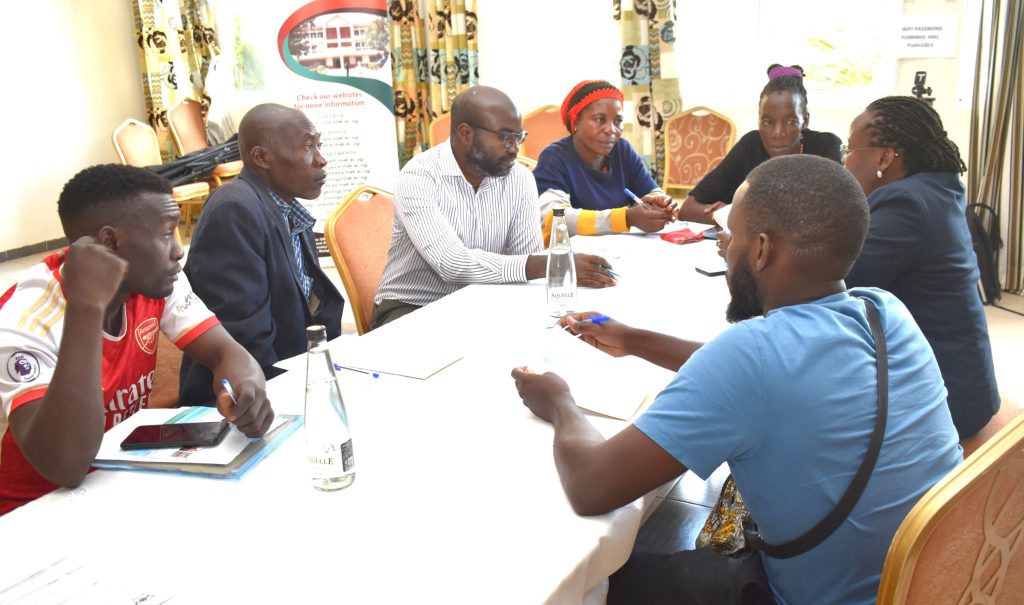
The CAO Mukono District called for intensified training of farmers in aquaculture management practices. She advised the farmers to work in groups if they are to make reasonable profits.
The Principal, College of Natural Sciences (CoNAS), Makerere University, Prof. Winston Tumps Ireeta, acknowledged the involvement of the community in research, and appreciated the fish farmers for actively participating in the project activities. He expressed gratitude to the Government of Uganda for the continued support towards research at Makerere University. Besides other initiatives geared towards improving research at Makerere, the Government is supporting over 700 research projects at Makerere through the Research and Innovations Fund. He also appreciated MAAIF and NEMA for the technical guidance extended towards the project.
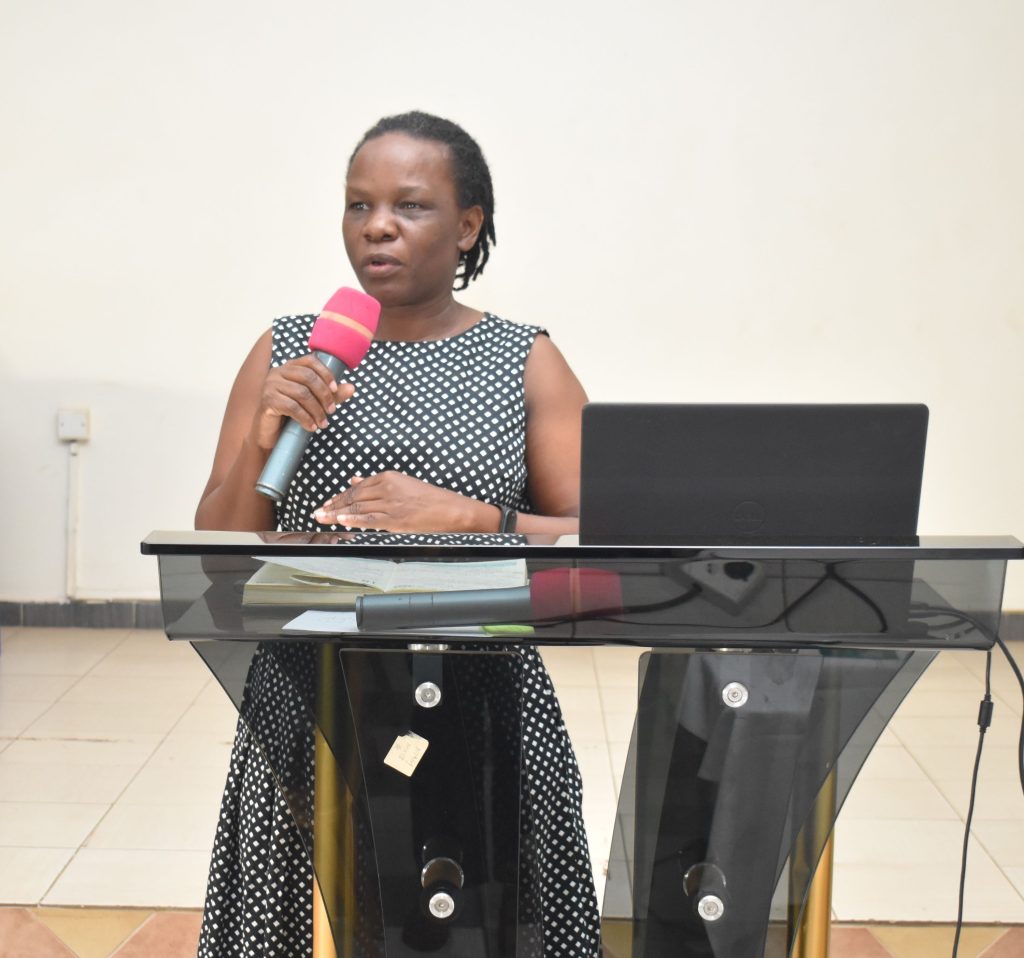
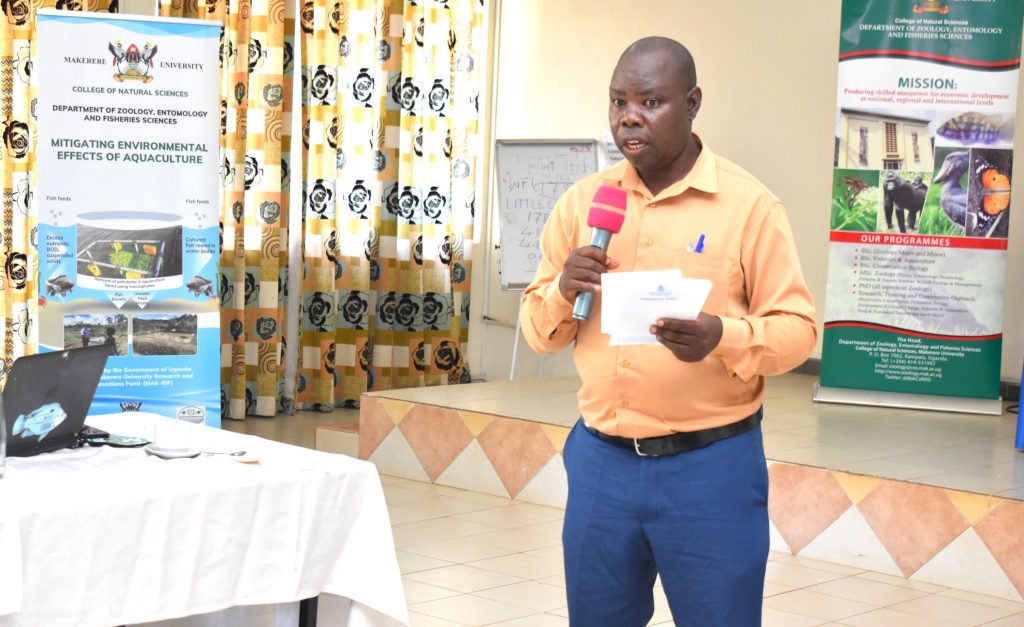
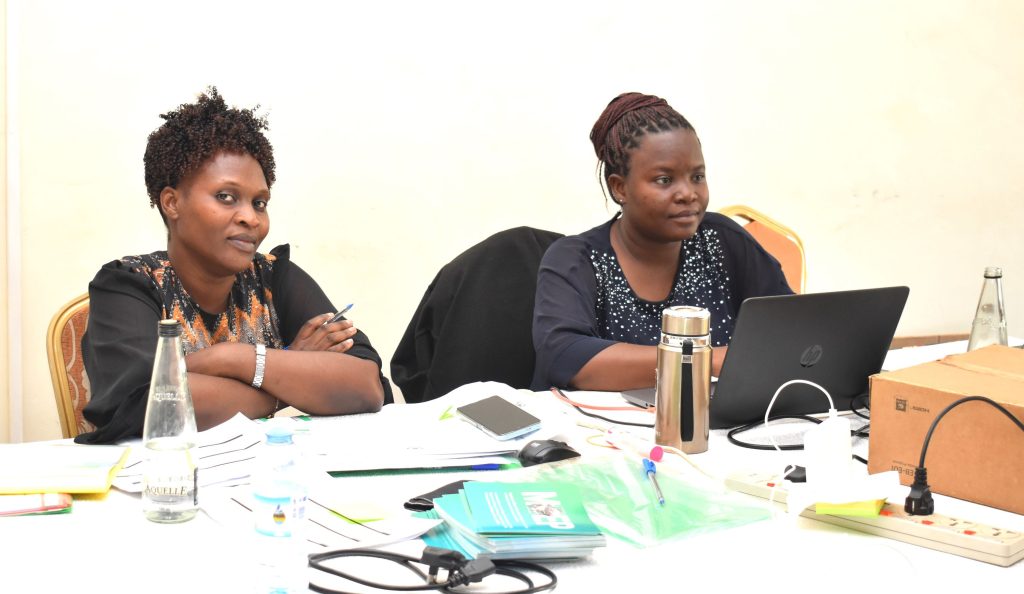
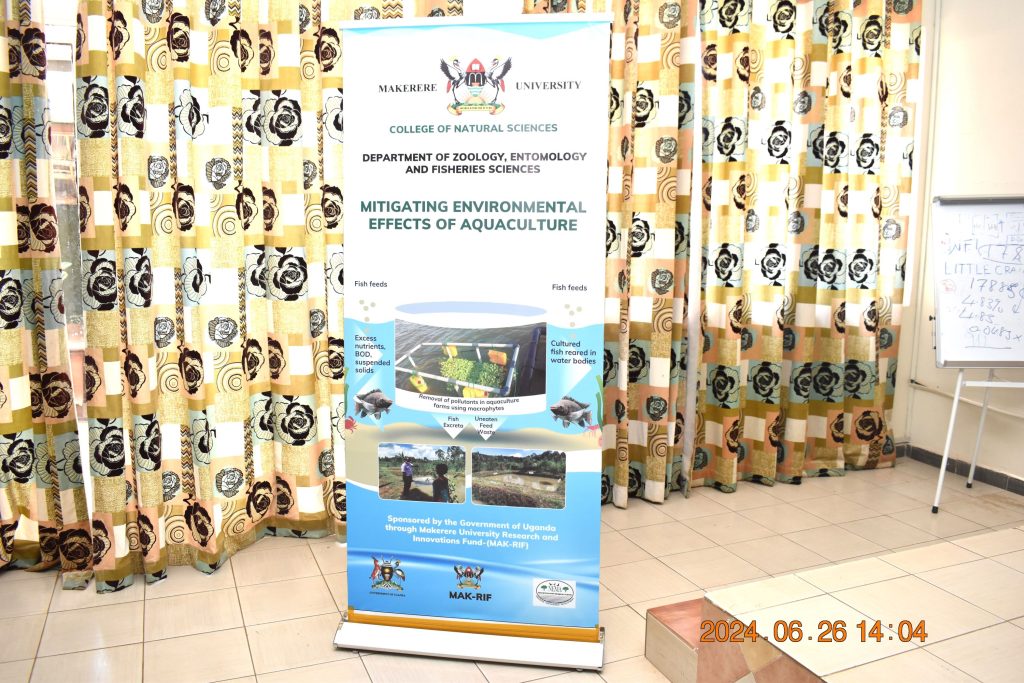
Natural Sciences
Call For Applications For Masters Scholarship Under The Biosorption For Sustainable Small-Scale Gold Mining In Uganda (BioGold) Project
Published
2 months agoon
June 5, 2024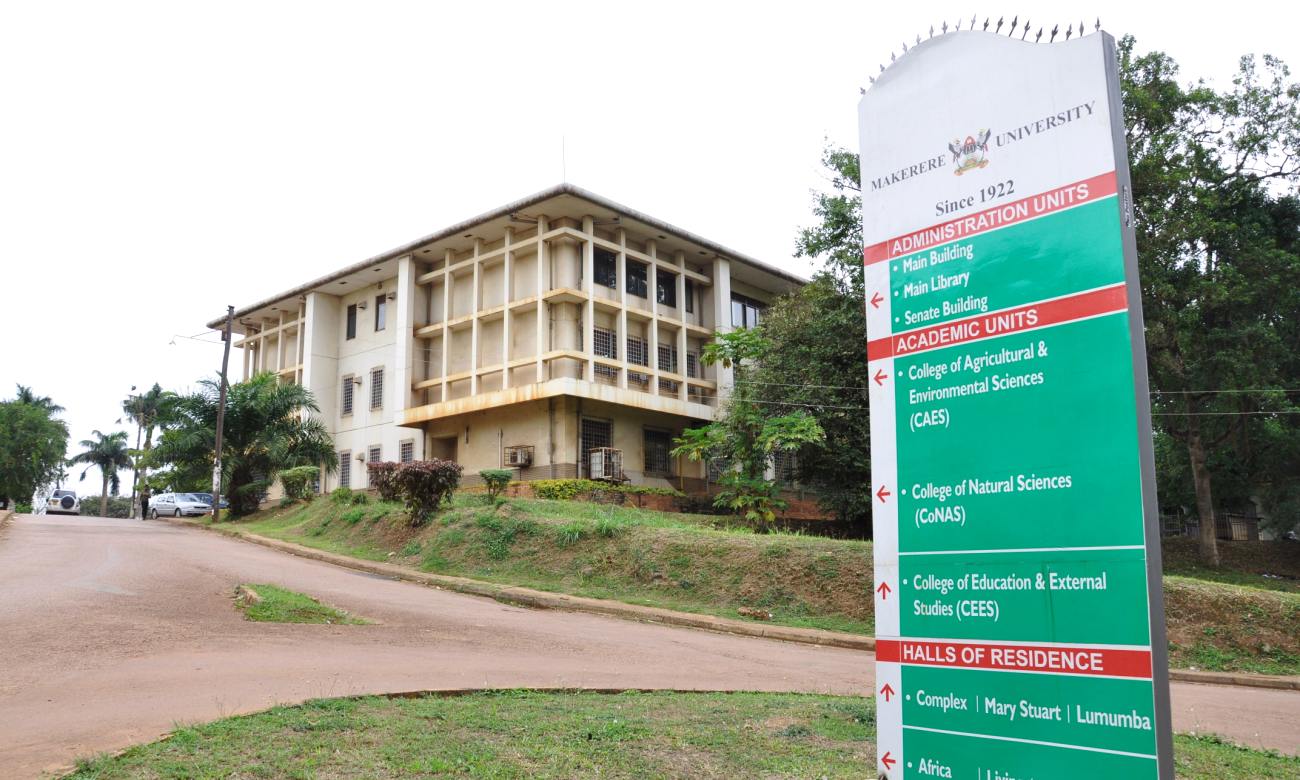
BioGold Project is a three-year collaborative project among five academic institutions including, Kyambogo University, Makerere University, Gulu University, University of Pretoria and University of Continuing Education, Krems, Austria funded by the Austrian Development Cooperation under the APPEAR Partnership. The project will combine principles of biosorption and chemical remediation to treat contaminated wastewater, tailings, rehabilitate contaminated soils so as to protect vulnerable ecosystems surrounding artisanal gold mining (ASGM) areas in Uganda. This study will design biochar composites from locally available biomass to enhance mercury removal from wastewater and tailings as well as rehabilitate mercury-contaminated soils making them fit for agriculture. The project envisages to train and build capacity of young researchers in Uganda. As such the project has been allocated an MSc. position under Component II, to support to full-time student to undertake studies in Austria. The successful MSc candidate is expected to undertake research on characterizing, optimizing biochar and modify the biochar to improve the sorption capacities.
The project consortium is now inviting qualified and interested persons to apply for nomination for the award of the scholarship. The project has strong preference for female candidates, therefore strongly encouraged to apply.
Eligibility criteria
In addition to APPEAR requirements https://appear.at/en/implementation/embedded-scholarship-application, the applicants should:
- Not be older than 30 years (women not older than 35)
- Demonstrate interest and capability to work in the priority themes
- Present a concept note to provide understanding of the subject
- Have a minimum of second- upper class bachelor’s degree in any of the following programmes: BSc in Chemistry, BSc in Environmental Science, & BSc in Environmental Engineering
Benefits
The successful applicants will receive a full scholarship (up to 24 months) which includes;
- Return air ticket and visa costs to Austria
- Monthly stipend of €1000 while in Austria to cater for personal welfare, accommodation and local movement
- Research related expenses.
Application process
- A complete application form
- A one-page motivation letter
- Curriculum vitae (maximum 2 pages)
- A completed Master Scholarship Application Form for Embedded APPEAR Projects
- Copies of Academic documents
- Photocopy of the passport and/or ID
- Recommendation letters from two academic referees.
- All applications must be sent electronically to Dr. Mary Kaggwa (marykaggwa@kyu.ac.ug) and copied to Dr. Peter Akoll (peter.akoll@mak.ac.ug) and Dr. Denis Nono (d.nono@gu.ac.ug) not later than 5.00pm East African Time on 20th June 2024.
Members of staff with former students interested in biochar technology and its use in heavy metal removal are requested to share the advert with them.
Full Advert and Application form may be accessed below.
Note: Only successful applicants will be contacted.
Trending
-
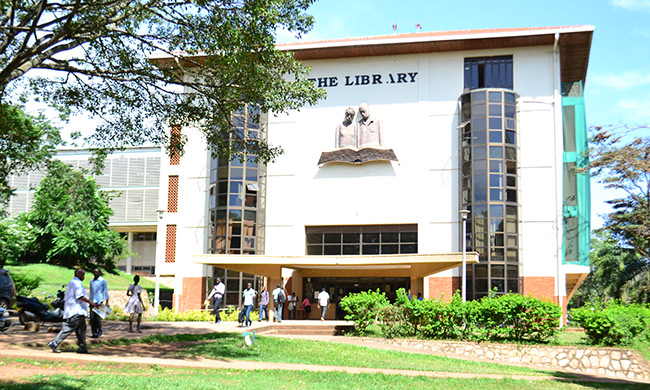
 General1 week ago
General1 week agoDiploma/Degree Holders Admission Lists 2024/25
-
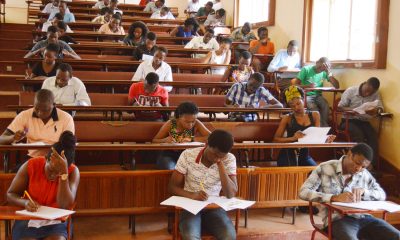
 General1 week ago
General1 week agoAdvert: Mature Age Entry Scheme – Private Sponsorship 2024/2025
-
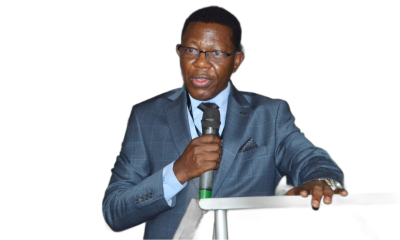
 General5 days ago
General5 days agoProf. Buyinza Mukadasi Appointed Acting DVC Academic Affairs
-
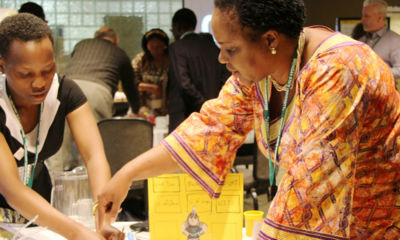
 General2 weeks ago
General2 weeks agoAfrican Futures Research Leadership Program: Cohort 5 – Call for Scholars
-
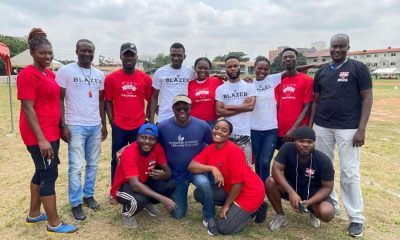
 General2 weeks ago
General2 weeks agoNow Open: CADFP Project Requests
